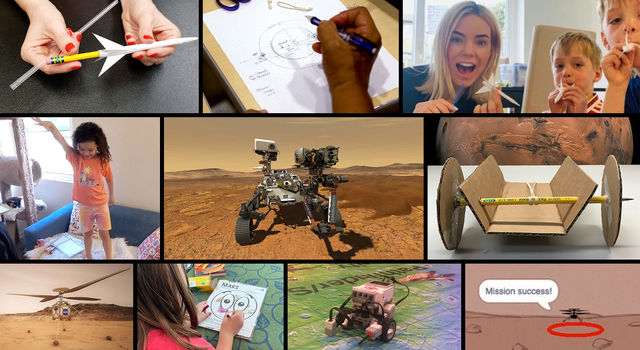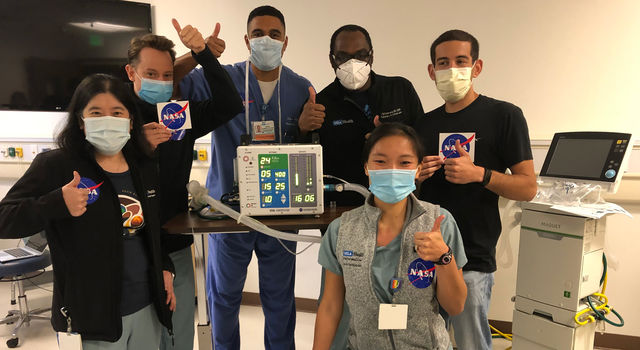Blogs | JPL | December 20, 2010
Red, Red Moon and Other Lunar Eclipse Phenomena
A lunar eclipse occurs when the Earth is positioned between the sun and the moon. Although the Moon passes through the Earth's shadow, the lunar disk remains partially illuminated by sunlight that is refracted and scattered by the Earth's atmosphere.
Refraction is the bending of light that occurs when the rays pass through media of different densities (our atmosphere is more dense near the surface and less dense higher up). Scattering of sunlight by molecules of air also deflects the light into different directions, and this occurs with much greater efficiency at shorter (bluer) wavelengths, which is why the daylight sky appears blue. As we view the sun near sunrise or sunset the light traverses a longer path through the atmosphere than at midday, and when the air is relatively clear, the absence of shorter wavelengths causes the solar disk to appear orange.
Tiny airborne particles, also known as aerosols, also scatter sunlight. The relative efficiency of the scattering at different wavelengths depends on the size and composition of the particles. Pollution and dust in the lower atmosphere tends to subdue the color of the rising or setting sun, whereas fine smoke particles or tiny aerosols lofted to high altitudes during a major volcanic eruption can deepen the color to an intense shade of red.
If you were standing on the Moon's surface during a lunar eclipse, you would see the Sun setting and rising behind the Earth, and you'd observe the refracted and scattered solar rays as they pass through the atmosphere surrounding our planet. Viewed from the Earth, these rays "fill in" the Earth's shadow cast upon the lunar surface, imparting the Moon's disk with a faint orange or reddish glow. Just as we sometimes observe sunrises and sunsets with different shades of orange, pink or red due to the presence of different types of aerosols, the color of the eclipsed lunar disk is also affected by the types of particles that are present in the Earth's atmosphere at the time the eclipse occurs.
TAGS:EARTH, EARTH SCIENCE, GLOBAL CLIMATE CHANGE, GLOBAL WARMING, NASA, LUNAR ECLIPSE







